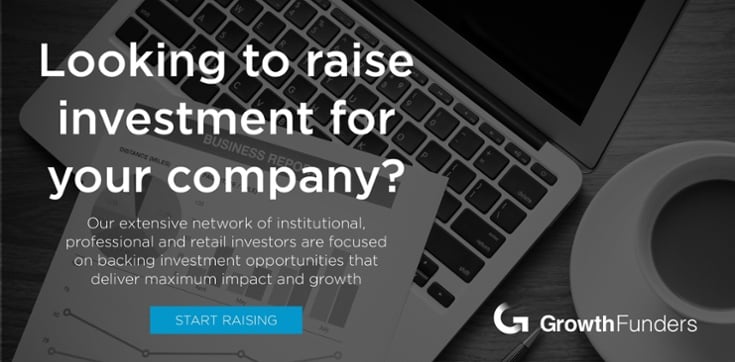Investment Readiness
Raising growth capital for businesses is a challenge. It can take a lot of time and focus which means the day job of building the business or product and driving revenues can be hindered.
Raising capital is a crucial strategic decision for any business, and there are different types of money available from different sources.
The first step for any business is to understand what type of funding or mix of funding will be most appropriate for the business at the current stage, and will ensure that the management team can execute the overall growth strategy.
An established revenue generating and profitable business may be in a position to service debt, whereas a pre-revenue high-growth start up will probably need equity investment to grow. Whatever type of funding your business needs it's important that you are investment ready.
Understanding the type of funding that your business needs is the first step. The second essential step is to understand which funders or investors are best placed to provide the capital you need.
Craig Peterson, Co-Founder of GrowthCapitalVentures and GrowthFunders, shares his thoughts on the key elements that growth focused businesses should consider as part of their investment readiness plan:
“At Growth Capital Ventures we help businesses raise capital from our network of Venture Capital and Private Equity Funds, together with a network of High Net Worth Individuals and Retail Investors. We back businesses with high growth potential, and generally these businesses are looking for equity investment. They are therefore comfortable with the idea of selling a share of the their business in exchange for investment, providing the business with growth capital to scale up.
There are many points to consider from an investment readiness perspective, and I would suggest the business considers the deal from the investor’s point of view. As an investor there are 5 key points I would look for. This is by no means an exhaustive list, but I would encourage any team raising equity finance to first of all understand their investor audience clearly and then provide them with the information they need.
Personally, I like to consider the 5 M’s as a starting point.
- Management:
- How complete is the management team?
- Do they have deep sector knowledge?
- Have they raised capital, built a team and scaled up a business previously?
- What skillsets do they have? Can the team market and sell their product.?
- How can any skills gaps be filled? Do the team have plans to address this?
- Market:
- Do you understand your market clearly in terms of market size, trends and gaps in the market?
- Are your potential customers experiencing a genuine problem that your product or service can solve better, quicker or cheaper than your competition?
- Model:
- Can you clearly articulate your business model and revenue model?
- Be clear on how you make money.
- Who your target customers are and what sales and marketing channels are you going to use to reach them?
- What is your value proposition and why will it make potential customers choose your product or service over a competitor’s?
- Highlight any strategic partnerships that are critical to your success or will help you create and maintain a competitive advantage.
- Money:
- How much capital are you looking to raise in exchange for what percentage of equity?
- How are you going to use the funds to increase the value of your business and reach a successful exit?
- Momentum:
- Does the business have momentum or traction?
- Is the business moving forward to reach pre-defined goals that create value or mitigate risk?
- Is there a Minimum Viable Product (MVP) that can be used by potential customers and early adopters?
- Does the MVP demonstrate the value of the product or service?
- Is the business generating revenues or have you identified a clear path to monetisation?
Any investment ready business should be in a position to clearly demonstrate a strong team, a deep understanding of their market and competition, a detailed understanding of their business model, how the business makes money and what traction and key milestones have been achieved. More importantly the business must know what the plans are once funds are raised, how the funds will be used to scale the business and what the key value creating milestones are that will ultimately lead to a successful exit.
Overall, becoming fully investment ready is an intensive process. The more prepared you are the better your supporting documents will be. Some companies can raise capital with a deck and some high level numbers… but this is very rare. This tends to happen in companies where the people, the company/product name or the business reputation are already known to potential investors and therefore the supporting documents are less important. In the main, an investee company will need to produce a decent plan and robust set of numbers that clearly articulate where they are now, where they want to go and how they're going to get there. Generally, the outcome of being investment ready is a set of documents that are instrumental in unlocking investment;
- Opportunity Note - an executive summary of the business, raise and offering
- Investor Presentation - a deck for face to face presentations and demos
- Investment Memorandum - a full investment document on the business, product, markets, problem, solution, financials and plans
- Financial Forecast - a well documented and logical set of financials
We see too many businesses that are just not investment ready trying to raise capital. Pitching to investors when you’re not ready will waste valuable time. When you’re raising equity finance you are selling shares in your business in exchange for the capital that will transform your business and accelerate growth. This capital should be the catalyst to helping you significantly increase the value of your business and your share of the business... probably the most important sale you will ever make.
I'm still surprised that some founders don't invest in the investment readiness process in the same way they would invest in a product launch. Both are about making a sale, both are crucial to success, and I would expect to see the same level of polished information for both.”
If you’d like further information on becoming Investment Ready with GrowthCapitalVentures and our co-investment platform, GrowthFunders, please get in touch today by clicking below:
%20(3)%20(2).jpg)








